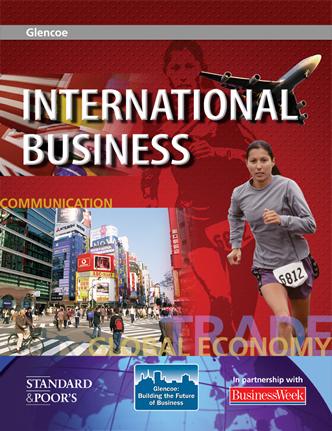
International BusinessChapter 12: Products, Pricing, and DistributionBusinessWeek OnlineRead this article. Then write a paragraph that explains how FedEx can help cut warehousing costs. FedExTaking off like "a rocket ship" As soon as Motion Computing Inc. in Austin, Tex., receives an order for one of its $2,200 tablet PCs, workers at a supplier's factory in Kunshan, China, begin assembling the product. When they've finished, they individually box each order and hand them to a driver from FedEx Corp. (FDX), who trucks it 50 miles to Shanghai, where it's loaded on a jet bound for Anchorage before a series of flights and truck rides finally puts the product into the customer's hands. Elapsed time: as little as five days. Motion's inventory costs? Nada. Zip. Zilch. "We have no inventory tied up in the process anywhere," marvels Scott Eckert, Motion's chief executive. "Frankly, our business is enabled by FedEx." There are thousands of other Motion Computings that, without FedEx, would be crippled by warehouse and inventory costs. That value proposition has made the Memphis shipping giant an indispensable partner for companies whose products are made in China. In the past two years, the volume of goods that FedEx has shipped over its vast international network has soared 40%, with much of the growth from Asia. FedEx earnings leapt 21% last year, and its stock price has more than doubled since 2003, landing FedEx the No. 40 spot on the BusinessWeek 50. "FedEx has been a rocket ship," says Daniel Ortwerth, analyst at St. Louis brokerage Edward Jones. That FedEx has become the preferred carrier out of China is no accident. As far back as the 1980s, FedEx founder and CEO Frederick W. Smith predicted that Asia would become an economic powerhouse. In 1989 he shelled out $895 million to buy Tiger International Inc., a struggling cargo hauler that nonetheless had assets Smith coveted: flying rights into most major Asian airports and a management team with a deep knowledge of the Pacific Rim. Wall Street roundly panned the move—many Asian economies were unstable at the time—but it was prescient, giving FedEx a 10-year jump on rivals. "Analysts didn't like it," chuckles Michael Ducker, executive vice-president for international in FedEx' express unit. "But like Wayne Gretzky used to say, we saw the puck and skated toward it." These days, FedEx operates 120 flights weekly to and from Asia, including 26 out of China alone. As a result, FedEx now controls 39% of the China-to-U.S. air express market, vs. 32% for United Parcel Service Inc. (UPS) and 27% for DHL International, according to Satish Jindel, president of SJ Consulting Group Inc. in Pittsburgh. Now Smith is doubling his bets on China. FedEx plans to close its Asian hub in the Philippines by 2008 in favor of a new $150 million superhub in Guangzhou, a city in the heart of one of China's fastest-growing manufacturing districts. Also in 2008, FedEx will take delivery of the first of up to 20 of Airbus' A380 cargo haulers, birds so massive that they hold twice the load of the Boeing (BA) MD-11. The A380 can fly nonstop from Asia to FedEx' U.S. hubs. Here again, Smith was ahead of the pack: By being the first American customer, he not only beat UPS to the punch but got to contribute to the configuration of the A380, too. "They played a pivotal role in the design," says Allan McArtor, chairman of Airbus North America Holdings Inc. and a former FedEx executive. FedEx' ambitions in China may extend beyond exports. In January, it spent $400 million to buy out its 50-50 delivery partner in China, Datian Group. That gives FedEx full control over Datian's truck fleet and its 89 distribution hubs. Some analysts, such as Morgan Stanley's (MWD) James Valentine, believe that the purchase is a step toward FedEx domestic service between China's largest cities, at least for large business customers. Some wonder, though, if China is ready for that, given the shabby state of its highways. "[FedEx] could run up against infrastructure problems," warns Ortwerth. Smith isn't worried. He's been right about China before. By Dean Foust Copyright 2000–2006 by The McGraw-Hill Companies Inc. All rights reserved. |  |















